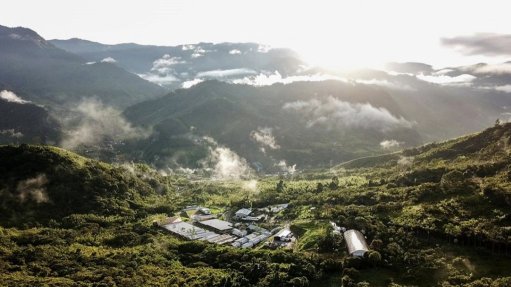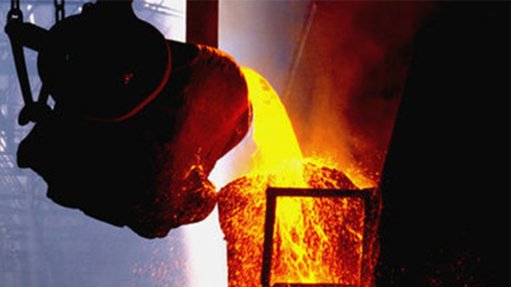Rethinking development in South Africa’s energy communities
If the energy transition is South Africa’s great leap forward, then development must be its conscience – and its compass must be human-centred. As we rewire our economy toward renewables, we cannot afford to replicate the inequalities of the past.
Rural and under-represented communities must be more than passive recipients – they must be recognised as co-creators of a new socio-economic future. This is our opportunity to reimagine energy infrastructure not just as a source of power, but as a platform for dignity, agency and long-term prosperity.
South Africa’s energy transition must be more than a technical pursuit – it must also serve as a blueprint for social equity and regenerative development. For rural communities, particularly those located near energy infrastructure projects, the opportunity to build sustainable, thriving economies is real – but only if development is inclusive, intentional and locally informed.
Too often, communities have been seen as beneficiaries rather than partners. True development requires deep, ongoing stakeholder engagement to ensure evolving needs are understood and addressed. This means creating mechanisms for co-
design, regular feedback and local leadership -empowering people to shape initiatives that are both relevant and impactful.
The town of Touwsrivier is living proof that this is not just theory. Over the last ten years, we have witnessed first-hand that when a community is treated as an active participant in its own development journey, the results are undeniable. From stimulating the local economy to expanding skills development and micro-enterprise initiatives, Touwsrivier illustrates how community-centred development can lead to measurable progress. For instance, the establishment of the Touwsrivier hydroponic farm not only created local employment but also introduced sustainable agricultural practices to the area. A number of graduates from the renewable energy training programme have gone on to secure jobs in the energy sector and related industries, expanding their horizons beyond the town itself. The Touwsrivier example also proves that development and impact takes times. When we aim for more sustainable change, we have to accept that it may take years to achieve, and that it falls on us, as implementing agents, to steer the course. Further, it shows us that renewable energy projects, when embedded in real partnership with local people, can serve as anchors for broader socio-economic renewal.
A renewable energy site should not exist in isolation. It should catalyse a developmental ecosystem, and for Knowledge Pele that means anchoring initiatives in skills development, industry creation and social infrastructure. By investing in local talent and enabling people to participate in the green economy, we shift from transactional support to transformational change.
Key to this shift is preparing communities for the Just Energy Transition. Training and education must be locally relevant and aligned to real economic opportunities across the energy value chain. This includes both technical and entrepreneurial pathways, ensuring long-term viability and local ownership of outcomes.
At the same time, we must create industries in communities, not just jobs from projects. Development must stimulate local manufacturing, agriculture and services that are resilient and future-orientated. When people have access to diversified livelihoods, communities move from dependency to agency.
The energy transition offers a powerful opportunity to foreground social equity. Rural and historically marginalised communities must be supported to become economic hubs – central players in a low-carbon economy that benefits them as much as the broader national agenda.
There is no single roadmap. Development is not about imposing solutions but about enabling them, recognising the interconnectedness of people, infrastructure and industry. With the right approach, renewable energy can do more than power homes; it can power potential, prosperity and purpose for generations to come.
Jolene Shaw, GM at Knowledge Pele since 2023, oversees operations and development programmes aimed at community impact and sustainability. She holds a Bachelor's Degree and Honours in Development Studies, a Master's in Public Administration, and is pursuing a Master of Management in Innovation Studies. Shaw is dedicated to reshaping community ecosystems for sustainable livelihoods and has received prestigious awards for her contributions.
Article Enquiry
Email Article
Save Article
Feedback
To advertise email advertising@creamermedia.co.za or click here
Press Office
Announcements
What's On
Subscribe to improve your user experience...
Option 1 (equivalent of R125 a month):
Receive a weekly copy of Creamer Media's Engineering News & Mining Weekly magazine
(print copy for those in South Africa and e-magazine for those outside of South Africa)
Receive daily email newsletters
Access to full search results
Access archive of magazine back copies
Access to Projects in Progress
Access to ONE Research Report of your choice in PDF format
Option 2 (equivalent of R375 a month):
All benefits from Option 1
PLUS
Access to Creamer Media's Research Channel Africa for ALL Research Reports, in PDF format, on various industrial and mining sectors
including Electricity; Water; Energy Transition; Hydrogen; Roads, Rail and Ports; Coal; Gold; Platinum; Battery Metals; etc.
Already a subscriber?
Forgotten your password?
Receive weekly copy of Creamer Media's Engineering News & Mining Weekly magazine (print copy for those in South Africa and e-magazine for those outside of South Africa)
➕
Recieve daily email newsletters
➕
Access to full search results
➕
Access archive of magazine back copies
➕
Access to Projects in Progress
➕
Access to ONE Research Report of your choice in PDF format
RESEARCH CHANNEL AFRICA
R4500 (equivalent of R375 a month)
SUBSCRIBEAll benefits from Option 1
➕
Access to Creamer Media's Research Channel Africa for ALL Research Reports on various industrial and mining sectors, in PDF format, including on:
Electricity
➕
Water
➕
Energy Transition
➕
Hydrogen
➕
Roads, Rail and Ports
➕
Coal
➕
Gold
➕
Platinum
➕
Battery Metals
➕
etc.
Receive all benefits from Option 1 or Option 2 delivered to numerous people at your company
➕
Multiple User names and Passwords for simultaneous log-ins
➕
Intranet integration access to all in your organisation





















